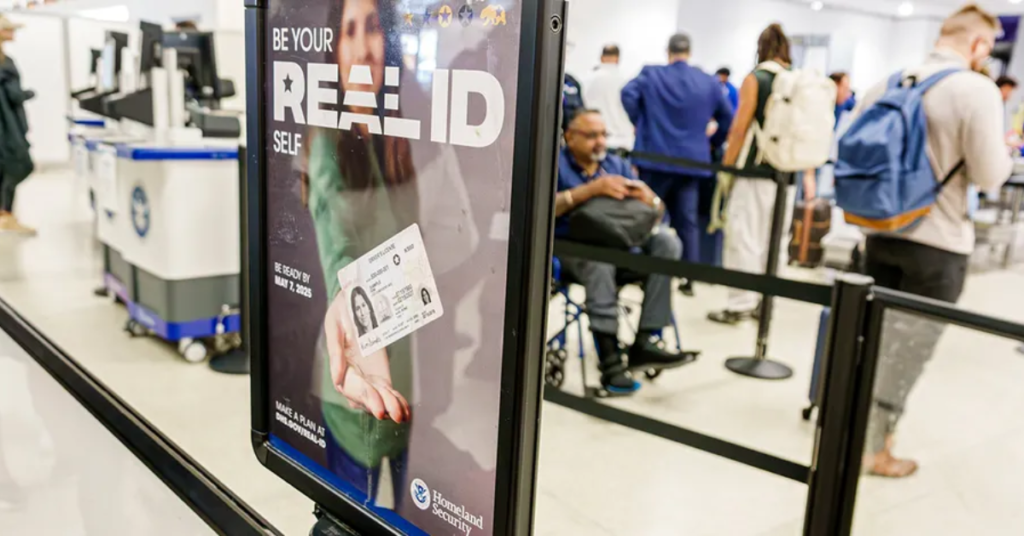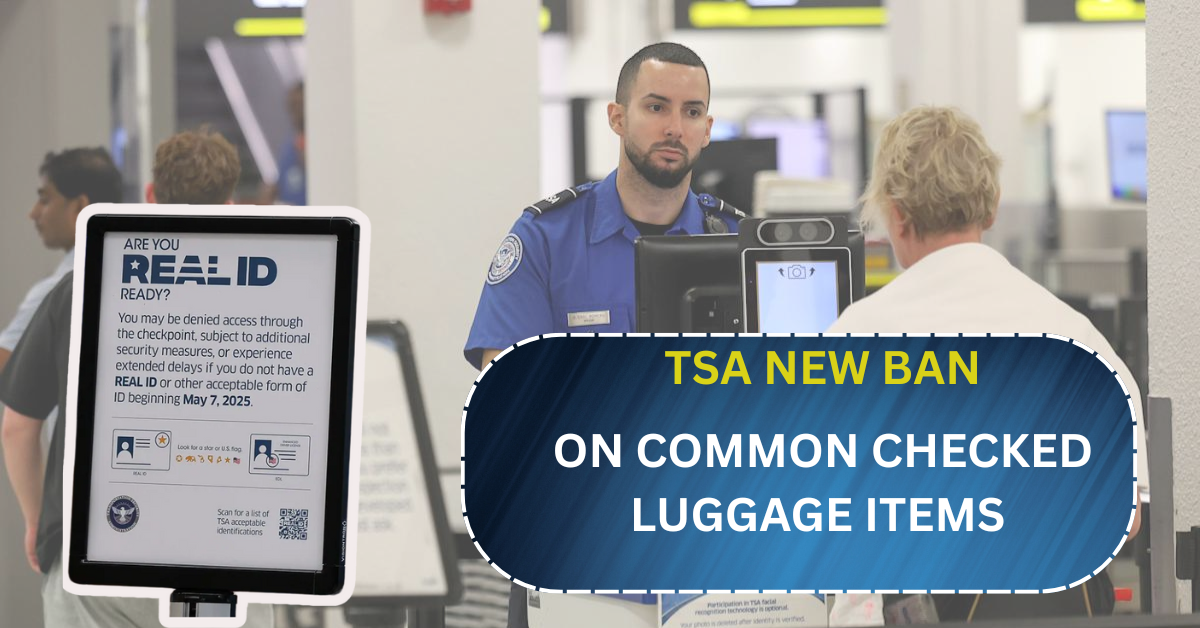If you’re flying soon, there are two things you really need to know: one, the REAL ID deadline is coming up fast, and two, the TSA has announced a new ban that could seriously impact your packing plans. Starting from March 1, 2025, travelers are no longer allowed to pack portable chargers, power banks, and certain lithium battery-powered devices in their checked luggage.
But here’s the good news—you can still bring these items in your carry-on bag. The rule is only for checked baggage, so if you keep your devices with you in the cabin, you’re in the clear.
Why Did the TSA Ban Power Banks from Checked Bags?
The new rule comes after some worrying incidents involving fires caused by lithium batteries. In January 2025, a Russian airplane in South Korea had a terrifying moment when a power bank exploded, causing a fire onboard. Thankfully, all 179 passengers and six crew members were evacuated safely, but it raised serious safety concerns, according to a Reuters report.
And that’s not the only case. In November 2024, a Southwest Airlines flight from Denver had to evacuate after a passenger’s cellphone caught fire mid-flight. Another Southwest flight, heading to Miami in April 2024, had to make an emergency landing when a crew member spotted a smoking phone in the cabin. These are just a few examples of how dangerous lithium battery fires can be at 30,000 feet.
Lithium Battery Fires: A Growing Problem
Lithium-ion battery fires have made headlines across the world in recent years. Whether it’s electric cars, scooters, mobile phones, or laptops, these batteries can be a fire risk if they overheat or get damaged.
Back in 2024, Jimmy Patronis, Florida’s former Chief Financial Officer and now a U.S. Congressman, warned about the risk of electric vehicles catching fire after hurricanes and floods. In a tragic case, a man from Charlotte County, Florida, died from smoke inhalation after his golf cart’s lithium battery exploded due to flooding during Hurricane Milton.
These types of incidents show just how unpredictable lithium battery fires can be. And once they start, they’re very hard to put out.
FAA: Battery Fires on Planes Have Jumped 42%
According to the Federal Aviation Administration (FAA), lithium-ion battery incidents on planes have risen by more than 42% over the last five years. In fact, the FAA told CBS News in November 2024 that there’s been at least one battery-related incident every week on U.S. passenger planes since 2021.
That’s a big reason why the TSA decided to update its rules and make things stricter to keep passengers and crew safe.
What Are Lithium-Ion Batteries and Why Are They Risky?
Lithium-ion batteries are rechargeable batteries found in many of the devices we use every day. Think about your cell phone, laptop, tablet, camera, smartwatch, or even electric toothbrush—chances are, they all use lithium-ion batteries.

These batteries are great because they’re lightweight and long-lasting. But if they get damaged, crushed, or exposed to extreme heat, they can overheat, catch fire, or even explode. That’s what makes them dangerous, especially on airplanes where a fire can be life-threatening.
Here’s What’s Now Banned from Checked Bags
The TSA’s new rule expands on a previous 2020 ban. Now, in addition to spare lithium batteries, the following items are also banned from checked luggage:
- Power banks (portable chargers)
- Cellphone battery charging cases
- Spare lithium-ion and lithium-metal batteries
- Extra cellphone batteries
- Extra laptop batteries
- External rechargeable batteries
- Portable rechargers
Important: If you’re at the gate and your carry-on bag needs to be checked because the overhead bins are full, you must take out any power banks or spare batteries and keep them with you in the cabin. The FAA also says battery terminals need to be covered to prevent any chance of a short circuit.
How to Check What’s Allowed
The TSA knows that all these rules can be confusing, especially when you’re packing in a hurry. That’s why they’ve created an online search tool where you can check if your item is allowed in your carry-on, checked bag, or not at all. It’s a good idea to look up any gadget you’re unsure about before heading to the airport.
What Is a REAL ID and Why Do You Need It?
Along with following the new TSA luggage rules, don’t forget about your REAL ID. Starting May 7, 2025, you’ll need a REAL ID or another acceptable form of identification to board domestic flights in the U.S. You’ll also need it to access many federal buildings, military bases, and even nuclear power plants.
The REAL ID program started after the 9/11 terrorist attacks, when the 9/11 Commission recommended that the U.S. tighten ID security nationwide. The REAL ID Act, passed in 2005, set tougher security standards for issuing driver’s licenses and ID cards.
Do You Already Have a REAL ID?
If you’re in Florida, there’s a good chance you already have a REAL ID. If your driver’s license or state ID was issued after January 2010, it probably meets REAL ID requirements. To check, look for a gold circle with a white star in the top right corner of your card.
How to Get a REAL ID in Florida
If you don’t have a REAL ID yet, you’ll need to visit your local driver’s license service center or tax collector’s office in person. You’ll need to bring original documents showing proof of:
- Your full legal name (such as a birth certificate or passport)
- Social Security number
- Two proofs of Florida residency (like a utility bill or lease)
Once you have your REAL ID, you can renew it online in the future—unless your name changes, in which case you’ll need to apply in person again.
Stay Safe and Ready to Travel
With the busy summer travel season ahead and the REAL ID deadline right around the corner, now’s the time to double-check your travel plans. Keep your power banks and spare batteries in your carry-on bag, and make sure your ID is REAL ID-compliant. These small steps can save you from big headaches at the airport and help you travel safely and smoothly.

Deepak Grover is a dedicated content writer at OTE News, specializing in government affairs, public policy, and current events. With a keen eye for detail and a passion for factual reporting, he ensures readers receive accurate and insightful news. Deepak holds a degree in Political Science and has experience in research-driven journalism.
When not writing, he enjoys reading historical books, exploring hiking trails, and staying updated with global political trends. His commitment to ethical journalism makes him a trusted voice at OTE News.




